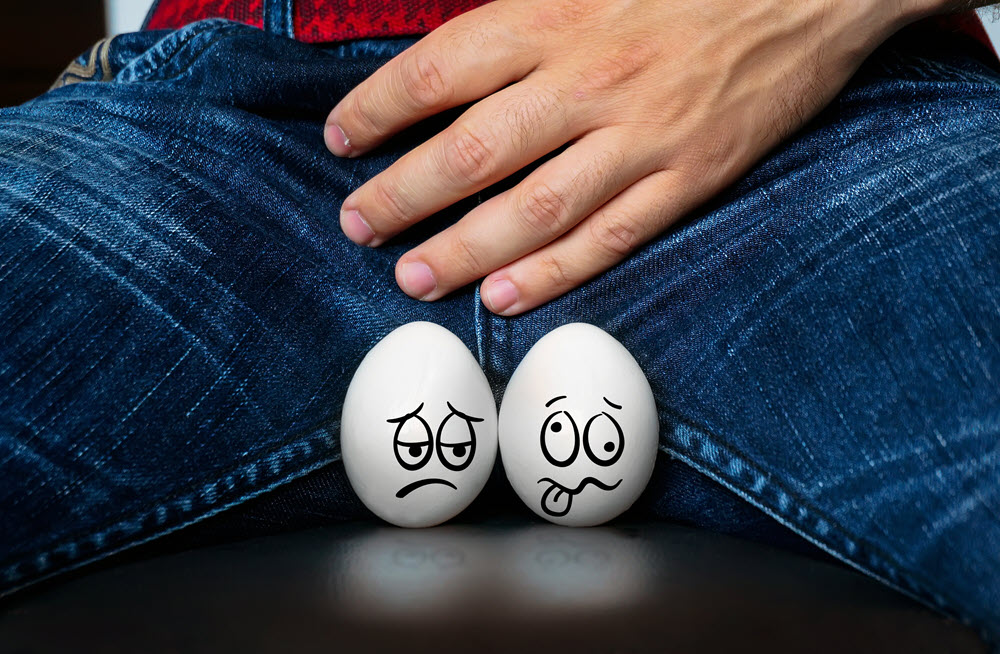Male Topics
Epididymitis
By S.I. (staff writer) , published on December 17, 2021

Medicine Telehealth Health genitals inflammation
What is Epididymitis?
Epididymitis is an inflammatory condition characterized by swelling, redness, and infection of the epididymis [1]. The epididymis is a long, curved tube that lies on the posterior side of each testicle. It stocks and transmits sperms out of the testes.
Although the causes of the disease are not known yet, reflux of urine into the ejaculatory ducts is believed to be the most common cause of epididymitis in kids less than 14 years of age.
Sexually transmitted infections through vaginal and anal intercourse are the common cause of epididymitis in males of 14 to 35 years of age.
What are the Types of Epididymitis?
Following are the several types of epididymitis [2]:
- Acute Epididymitis
- Chronic Epididymitis
- Epididymo-Orchitis
- Pediatric Epididymitis
What are the Signs and Symptoms of Epididymitis?
The signs and symptoms of epididymitis vary from person to person. One patient might experience all the symptoms while the other patient might be asymptomatic or show mild symptoms only. Symptoms of the epididymitis in children and adults are different.
The signs and symptoms of epididymitis seen in adults might include [3]:
- An inflamed, red, or warm scrotum
- Testicular discomfort and tenderness, usually on one side
- Urinary urgency
- Penile discharge
- Irritation or discomfort in the deeper abdomen or pelvic region
- Blood in the semen
- fever
Signs and Symptoms of epididymitis in children include:
- Urethral discharge
- Irritation in the pelvis or deeper abdomen
- Discomfort or burning during urination
- Redness or warmth of the scrotum
- Fever
What are the Causes of Epididymitis?
Epididymitis can be caused by [4]:
- Sexually Transmitted Infections (STIs)
- Other infections
- Urine reflux in the epididymis (chemical epididymitis)
- Trauma
- Tuberculosis
- Recent genito-urinary surgery
- Urinary Catheter
- Kidney and bladder crises
What are Treatment Options for Epididymitis?
Acute epididymitis is diagnosed rapidly due to redness and pain, and it goes away rapidly with treatment. Chronic epididymitis has a slow onset and is presented with dull pain.
The treatment options for epididymitis include [5]:
- Antibiotics: these are prescribed to cure bacterial epididymitis and epididymo-orchitis. If the cause of the bacterial infection is Sexually Transmitted Infections, your sexual companion also needs treatment. An entire course of antibiotics is required to treat this illness, even if your symptoms clear up soon, the course has to be completed to ensure that the infection has gone.
- Complete bed rest: bed rest is advised by the doctor until the symptoms get better.
- Analgesics and Anti-inflammatory drugs: Pain-relieving medicines, the non-steroidal anti-inflammatory drugs (NSAIDs) such as ibuprofen or aspirin will assist in decreasing swelling and related pain.
- Cold packs: these are applied daily to the scrotum to reduce swelling.
- Hospitalization: in case of severe infection, the patient is hospitalized.
- Follow-up: Your doctor is likely to recommend a follow-up visit to check that the infection has cleared.
·Surgery: If an abscess has been formed, it might need incisional drainage. Occasionally, all or part of the epididymis has to be removed surgically called epididymectomy. Surgery may also be advised if epididymitis is due to underlying physical or anatomical abnormalities.
References:
- https://www.ncbi.nlm.nih.gov/books/NBK430814/#:~:text=Epididymitis%20is%20an%20infection%20or,sperms%20mature%20prior%20to%20ejaculation.
- https://www.ncbi.nlm.nih.gov/books/NBK430814/
- https://www.ncbi.nlm.nih.gov/books/NBK430814/#:~:text=The%20patient%20will%20likely%20complain,urgency%2C%20or%20incontinence%20of%20urine.
- https://www.ncbi.nlm.nih.gov/books/NBK430814/#:~:text=Epididymitis%20most%20often%20occurs%20as,genitourinary%20tract%20to%20the%20epididymis.
- https://www.ncbi.nlm.nih.gov/books/NBK430814/#:~:text=Treatment%20%2F%20Management&text=Epididymitis%20caused%20by%20repetitive%20activity,close%20primary%20care%20follow%2Dup.
Find articles related to: Medicine Telehealth Health genitals inflammation
More articles about Male Topics
Back to the Health Tips Index




